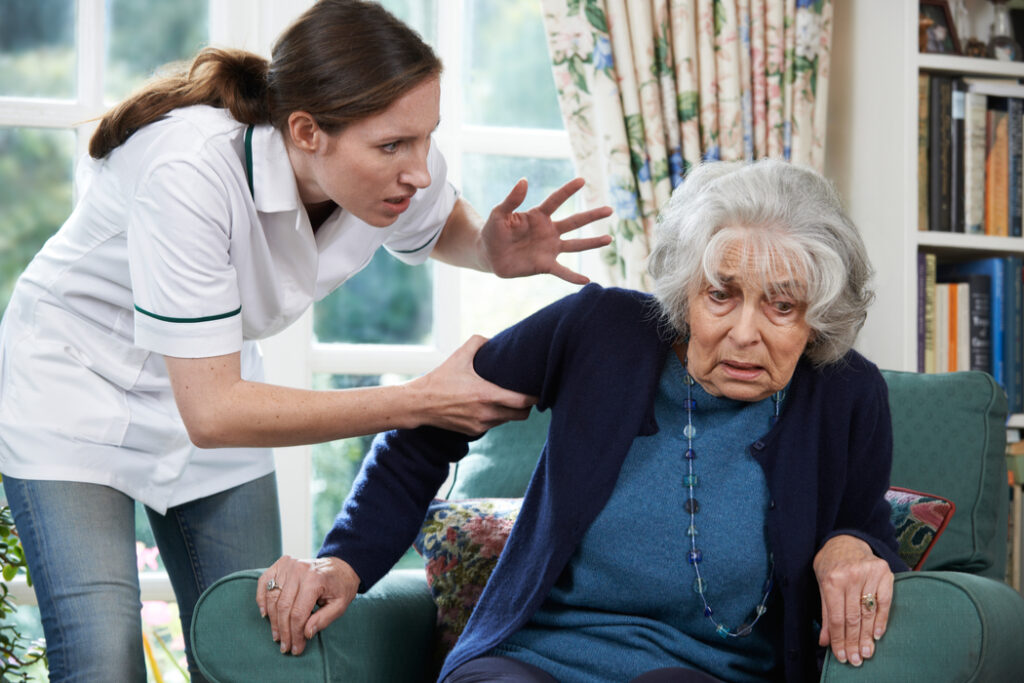Aurora Nursing Home Abuse Lawyer
According to the Illinois Department of Public Health, roughly 1,200 long-term nursing care facilities operate within the state, providing services for over 100,000 individuals. While most nursing homes succeed in their mission to give seniors the competent, compassionate attention they deserve, abuse or neglect sometimes takes place in such environments.
If you or a loved one has experienced mistreatment in a residential setting of this type, an Aurora nursing home abuse lawyer stands ready to help hold responsible parties accountable for their misconduct. Contact a dedicated injury attorney to begin your case today.

Scenarios That Constitute Nursing Home Abuse and Neglect
The National Center on Elder Abuse reported that in 2014 alone, the National Ombudsman Reporting System received more than 14,000 individual complaints related to exploitation, abuse, or gross neglect of nursing home patients.
However, not everyone is familiar with the types of conduct by caregivers that may, in fact, be actionable. Among the most common categories of nursing home abuse are:
- Neglect of patient hygiene needs
- Physical violence/unnecessary restraint
- Failure to provide needed medical attention
- Psychological manipulation and mistreatment
- Verbal attacks
- Financial exploitation/theft
- Sexual assault
Recognizing the Troubling Signs of Abuse
Families of those living in residential nursing facilities may find it difficult to recognize the red flags of abuse, particularly when their loved ones already suffer from age-related cognitive and social decline. However, some of the most telling signs of abuse include:
- Unusual bruising
- Unintended or rapid weight loss
- Decline in normal personal hygiene standards
- Appearance of bedsores
- Uncharacteristic aggression
- Unexplained agitation
- Burns
- Concerns over finances
- Lastly, withdrawal from hobbies, friendships, or other social interactions
Though the emergence of one, or perhaps even several of the above factors may not indicate neglect or abuse, family members need to pay close attention and monitor their loved one’s situation closely.
In this way, prompt legal action with the assistance of an Aurora nursing home abuse lawyer can be taken where necessary in order to intervene on the victim’s behalf and aggressively safeguard their rights.
Patient Rights Under Illinois Law
Illinois residents enjoy a series of statutory protections related to nursing home care, and these are articulated at length by 210 ILCS 45, commonly referred to as the Illinois Nursing Home Care Act.
By virtue of this legislation, those living in long-term care facilities have specifically defined rights to be free from neglect and abuse, the right to manage their own financial affairs, the right to access and use personal property, the right to have a personal physician, a right to participate in medical treatment decisions and more. Other key liberties enumerated by the Act include:
- Right to freedom from restraints that are not medically necessary
- Freedom from unnecessary medications
- Access to private visits
- Ability to confer with a social worker or attorney
- Right to receive private forms of communication
- Ability to voice grievances to appropriate agency or authority
Violation of these statutory rights may give rise to a valid legal claim capable of yielding significant financial compensation. Through the pursuit of claims against a facility owner, operator or others, victims may receive payment for medical bills, therapy costs, pain, mental anguish and other important categories of loss.
Contact an Aurora Nursing Home Abuse Attorney Today
The elderly in Illinois deserve to enjoy their remaining years in care environments that are safe, loving, and responsive to all medical and emotional needs. Mistreatment of senior citizens must never be allowed to go unanswered. Suffered at the hands of negligent, incompetent, or unscrupulous residential care personnel? An Aurora nursing home abuse lawyer is prepared to seek full accountability and fair compensation.
Our office hours range from 8:00 a.m. to 5:00 p.m. Monday through Friday and we answer our phones at (708) 222-2222 24/7. If you prefer, we have an online form you can use or you can utilize our LiveChat service as well.



